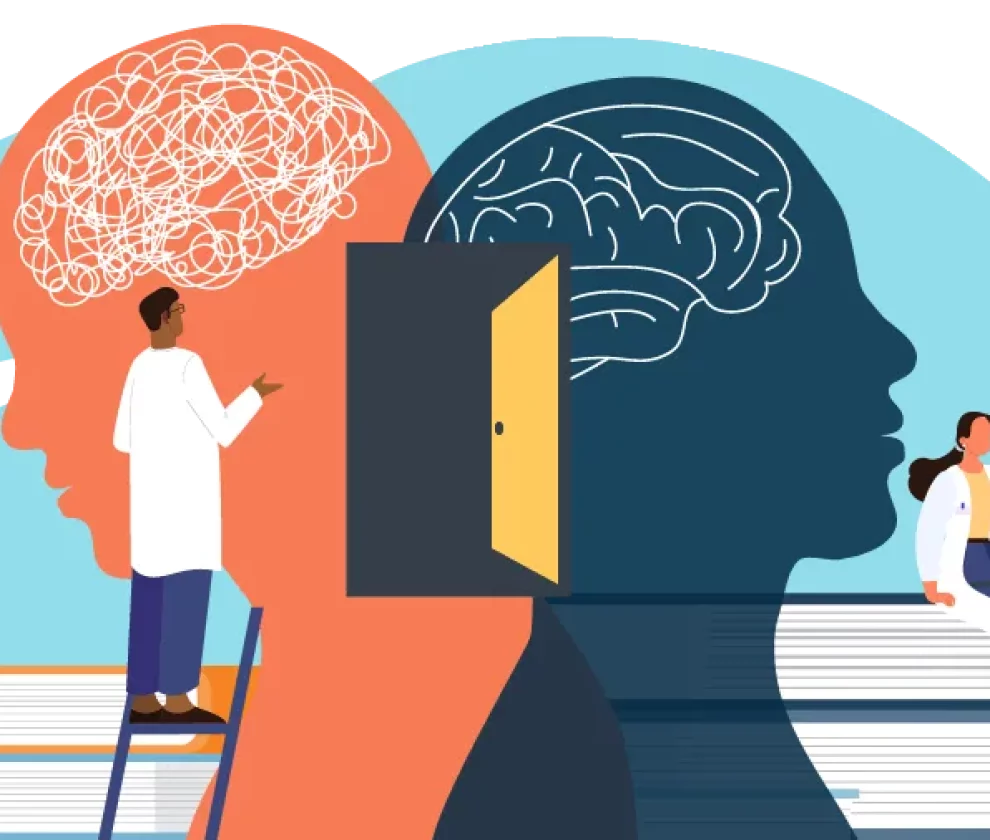Posttraumatic stress disorder (PTSD) is a debilitating condition that affects millions of people, including military veterans, survivors of sexual assault, and those who have experienced traumatic events. Traditional treatment options like cognitive behavioral therapy, exposure therapy, and selective serotonin reuptake inhibitors (SSRIs) have helped many, but they don’t work for everyone. This has led to increased interest in psychedelics for PTSD, with research suggesting that psychedelic-assisted therapy could be a breakthrough in mental health care.
Types of Psychedelics Used for PTSD Treatment
Psychedelic substances are gaining attention for their potential therapeutic effects in treating PTSD. These drugs work by altering brain function and emotional processing, which may help PTSD patients work through traumatic experiences in a controlled setting. Below are the primary psychedelics studied for their role in PTSD treatment.
MDMA (3,4-Methylenedioxymethamphetamine)
MDMA-assisted psychotherapy is one of the most promising treatment options for PTSD. Clinical trials conducted by the Multidisciplinary Association for Psychedelic Studies (MAPS) have shown significant improvement in PTSD symptoms when MDMA is used in conjunction with therapy. This treatment helps reduce fear response, increase emotional openness, and enhance the therapeutic bond between patient and therapist.
Psilocybin (Magic Mushrooms)
Psilocybin, the active ingredient in magic mushrooms, has shown promise in clinical studies for its ability to promote altered states of consciousness that help PTSD patients reprocess traumatic memories. A recent study found that a single dose of psilocybin, when paired with psychological support, led to a substantial reduction in psychological distress and depressive symptoms among participants.
LSD (Lysergic Acid Diethylamide)
LSD, one of the most well-known classical psychedelics, has been researched for its impact on serotonin receptors and the medial prefrontal cortex, areas of the brain involved in emotional regulation. Some small studies suggest it may be useful for treatment-resistant PTSD, though more research is needed.
Ayahuasca
Ayahuasca, a plant-based psychedelic brew containing DMT, has been used traditionally in indigenous ceremonies for spiritual and psychological healing. Recent clinical research suggests it may help with substance use disorders, major depression, and PTSD by allowing individuals to confront past trauma in a deeply introspective state.
How Psychedelics Work in the Brain
Psychedelic compounds function by interacting with serotonin receptors, leading to changes in perception, cognition, and emotional processing. They help individuals process fearful stimuli, allowing them to address traumatic experiences without the overwhelming emotional distress they typically cause. Studies have also shown that psychedelics increase neuroplasticity, meaning they help the brain form new, healthier patterns of thinking.
Clinical Trials and Research on Psychedelics for PTSD
Over the past decade, psychedelic research has accelerated, with multiple clinical trials examining the effectiveness of psychedelics in the treatment of PTSD. These studies provide scientific evidence for the potential benefits of these substances.
Notable Studies and Their Findings
- MDMA-assisted psychotherapy has been granted Breakthrough Therapy designation by the FDA, indicating that it shows significant promise compared to existing treatments.
- A recent study published in the Journal of Psychedelic Studies found that PTSD patients who received MDMA-assisted therapy experienced greater quality of life improvements than those in the placebo group.
- Research into psilocybin use has indicated that it can lead to a reduction in PTSD symptoms and an improvement in social anxiety.
Current Research and Future Directions
While current research is promising, more systematic reviews and large-scale clinical trials are needed to determine the long-term safety and efficacy of psychedelic-assisted psychotherapy. Studies continue to explore the therapeutic effects of different psychoactive drugs and how they compare to existing mental health treatments.
The Therapeutic Process: What to Expect
For individuals considering psychedelic-assisted therapy, understanding the therapeutic process is crucial. This treatment is not simply about taking a drug—it involves structured therapy sessions that ensure safety and effectiveness.
Preparation and Setting
Before taking a psychedelic substance, a mental health professional guides the patient through preparation sessions. These sessions focus on setting intentions, discussing concerns, and ensuring a safe environment.
The Psychedelic Experience
During the session, the individual takes the psychedelic medicine in a controlled setting, often with a therapist present to provide psychological support. The experience varies but typically involves deep emotional processing and heightened introspection.
Integration Therapy
After the psychedelic session, integration therapy helps patients make sense of their experiences. This phase is essential for transforming insights from the session into lasting psychological benefits.
Risks and Considerations
While psychedelic-assisted therapy shows promise, it is not without risks.
Potential Side Effects
Possible side effects include increased blood pressure, elevated heart rate, and, in some cases, psychological distress. Those with a history of psychiatric disorders should consult a professional before considering this treatment.
Legal and Ethical Issues
The federal government has classified many psychedelics as Schedule I substances, meaning they are illegal for general use. However, there is growing advocacy for FDA approval and the expansion of research into psychedelic medicine.
Personal Stories and Case Studies
Many individuals, including military veterans, have reported significant improvement in PTSD symptoms after undergoing psychedelic treatment. Case studies highlight the positive effects of these therapies in individuals who had treatment-resistant PTSD and major depressive disorder.
Comparing Psychedelic Therapy to Traditional PTSD Treatments
Traditional PTSD treatments like cognitive processing therapy, talk therapy, and Eye Movement Desensitization and Reprocessing (EMDR) have been widely used. However, some PTSD patients find that psychedelic-assisted therapy offers a deeper emotional breakthrough than conventional methods.
Expert Opinions on Psychedelics for PTSD
Psychiatrists and researchers in psychiatric disorders believe that psychedelic compounds could revolutionize mental health care. Organizations like the Veterans Affairs and Multidisciplinary Association for Psychedelic Studies (MAPS) advocate for increased clinical studies to explore these treatments further.
How to Access Psychedelic Therapy for PTSD
For those interested in psychedelic-assisted psychotherapy, understanding how to access these treatments is crucial.
Finding a Qualified Therapist
Individuals should seek out professionals trained in MDMA-assisted therapy, psilocybin-assisted therapy, or other psychedelic-assisted therapy models.
Legal Status and Accessibility
Currently, MDMA-assisted psychotherapy is in late-stage trials, and psilocybin use is being explored in states like Oregon. Those interested should stay updated on ongoing research and legal changes.
The Future of Psychedelics in PTSD Treatment
The potential of psychedelics for treating PTSD is undeniable. With clinical research continuing to grow, it’s likely that psychedelic-assisted therapy will become a mainstream mental health treatment option in the future. As studies progress, psychedelics could offer effective treatment for individuals who have struggled with current treatments.
Additional Resources
- Google Scholar for peer-reviewed articles on psychedelic research
- Multidisciplinary Association for Psychedelic Studies (MAPS)
- Veterans Affairs mental health services
- Clinical Practice Guideline for PTSD treatments
As interest in psychedelics and PTSD continues to rise, staying informed about ongoing research will be key for those seeking innovative mental health treatment options.




